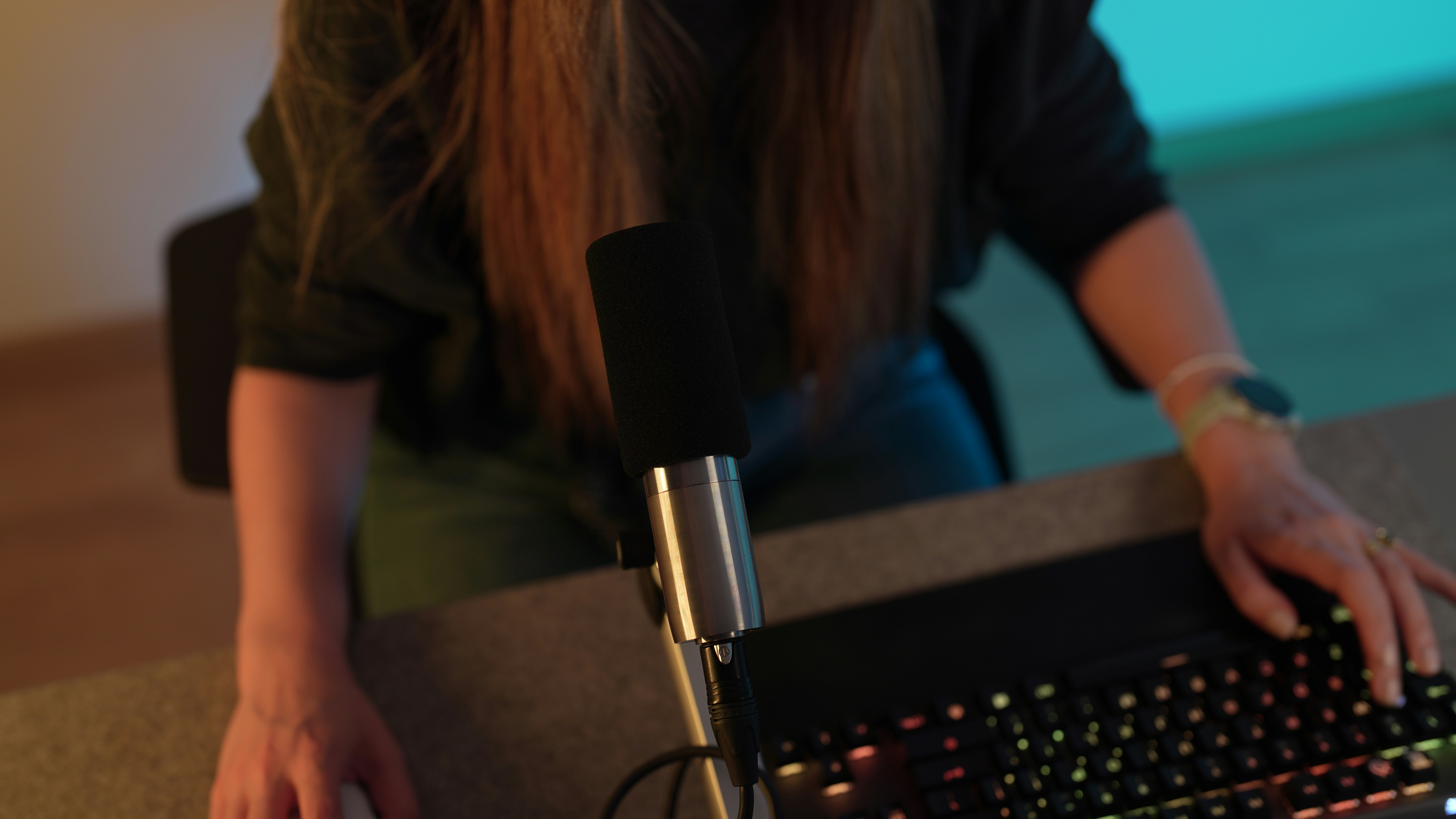January 20, 2024
The Ultimate Guide to Podcast Equipment: From Beginner to Pro
Your audio quality is the medium through which all your hard work - your research, your storytelling, your interviews - is delivered to your audience. Investing in good equipment and learning how to use it effectively is investing in the success of your podcast.
Productivity
8 Min Read
The Ultimate Guide to Podcast Equipment: From Beginner to Pro
Estimated read time: 8 minutes
The Crucial Importance of Good Audio Quality
Before we dive into the equipment, let's talk about why audio quality is absolutely essential for your podcast's success:
First Impressions Matter: Poor audio quality can immediately turn off new listeners, no matter how great your content is. High-quality audio, on the other hand, creates a professional first impression that keeps listeners engaged.
Listener Retention: Clear, crisp audio is easier and more enjoyable to listen to. This leads to higher retention rates as your audience is more likely to stick around for the entire episode and come back for more.
Perceived Value: Good audio quality subconsciously signals to your audience that you're serious about your podcast. It increases the perceived value of your content and builds trust with your listeners.
Versatility: High-quality audio gives you more options. You can repurpose your content for other mediums, like creating audiograms for social media or even using clips in video content.
Competitive Edge: In a saturated podcast market, excellent audio quality can set you apart from the competition. It's an investment that pays off in listener loyalty and growth.
Reduced Listener Fatigue: Poor audio can cause listener fatigue, where your audience gets tired or frustrated trying to understand what's being said. High-quality audio is easy on the ears, allowing listeners to focus on your message.
Remember, your audio quality is the medium through which all your hard work - your research, your storytelling, your interviews - is delivered to your audience. Investing in good equipment and learning how to use it effectively is investing in the success of your podcast.
Now, let's explore the equipment that will help you achieve that crucial high-quality audio, starting with the basics for beginners and moving up to pro-level gear.
Starting with the Basics: The Beginner's Setup
1. Microphone
Your microphone is the most crucial piece of equipment. For beginners, we recommend:
USB Microphones: Easy to use and budget-friendly.
Examples: Blue Yeti, Audio-Technica ATR2100x-USB
Pro Tip: Avoid using your computer's built-in microphone or smartphone microphone for the best audio quality.
2. Headphones
Headphones are essential for monitoring your audio. Look for:
Closed-back design for better sound isolation
Comfort for long recording sessions
Examples: Sony MDR-7506, Audio-Technica ATH-M20x
3. Pop Filter
A pop filter helps reduce plosive sounds (like 'p' and 'b'). Many USB microphones come with built-in pop filters, but if not, they're inexpensive to add.
4. Recording and Editing Software
For beginners, free options work great:
Audacity (Windows/Mac/Linux)
GarageBand (Mac)
Leveling Up: Intermediate Equipment
As you grow more comfortable with podcasting, you might want to upgrade your setup.
1. XLR Microphone
XLR microphones offer better audio quality but require additional equipment:
Popular options: Shure SM58, Rode PodMic
You'll need an audio interface to connect an XLR mic to your computer
2. Audio Interface
An audio interface converts analog signals from your XLR mic to digital signals for your computer:
Focusrite Scarlett 2i2 is a popular choice for podcasters
3. Mixer
A mixer allows you to control multiple audio sources:
Useful for podcasts with multiple hosts or live-streaming
Example: Rodecaster Pro (all-in-one solution for podcasters)
4. Acoustic Treatment
Improve your sound quality by treating your recording space:
Acoustic panels to reduce echo
Bass traps for corners
A reflection filter behind your microphone
Going Pro: Advanced Setups
For those aiming for the highest quality or running a podcast production business:
1. High-End Microphones
Dynamic mics like the Shure SM7B or Electro-Voice RE20
Condenser mics like the Neumann TLM 103
2. Advanced Audio Processing
Compressors and limiters for consistent audio levels
EQ units for fine-tuning your sound
3. Professional-Grade Interfaces and Recorders
Universal Audio Apollo Twin
Zoom H6 (for portable recording)
4. Studio Monitors
For accurate audio playback during editing:
Examples: Yamaha HS5, KRK Rokit 5
Remote Recording Equipment
With the rise of remote podcasting, consider these tools:
Software: Zencastr, Squadcast, or Riverside.fm for high-quality remote recording
Portable Recorders: Zoom H4n Pro for on-the-go interviews
Choosing the Right Equipment for You
When selecting your podcast equipment, consider:
Your Budget: Start with what you can afford and upgrade over time.
Your Tech Comfort Level: Don't buy equipment you're not comfortable using.
Your Podcast Format: Solo shows need less equipment than multi-host or interview-based podcasts.
Your Recording Environment: Consider room acoustics and potential background noise.
Maintenance and Care
To ensure your equipment lasts:
Store microphones upright to prevent moisture buildup
Use a dust cover when equipment is not in use
Regularly clean your equipment with appropriate products
Conclusion
Remember, while good equipment can enhance your podcast's quality, it's your content that truly matters. Start with the basics, focus on creating great content, and upgrade your setup as your podcast grows.
Ready to start your podcasting journey but still feeling unsure? Our podcast courses offer in-depth guidance on selecting, setting up, and using podcast equipment. We cover everything from budget setups to professional studios.
For those who prefer a hands-off approach, check out our Done-for-you podcasting services. We'll handle all the technical aspects, allowing you to focus solely on your content.










